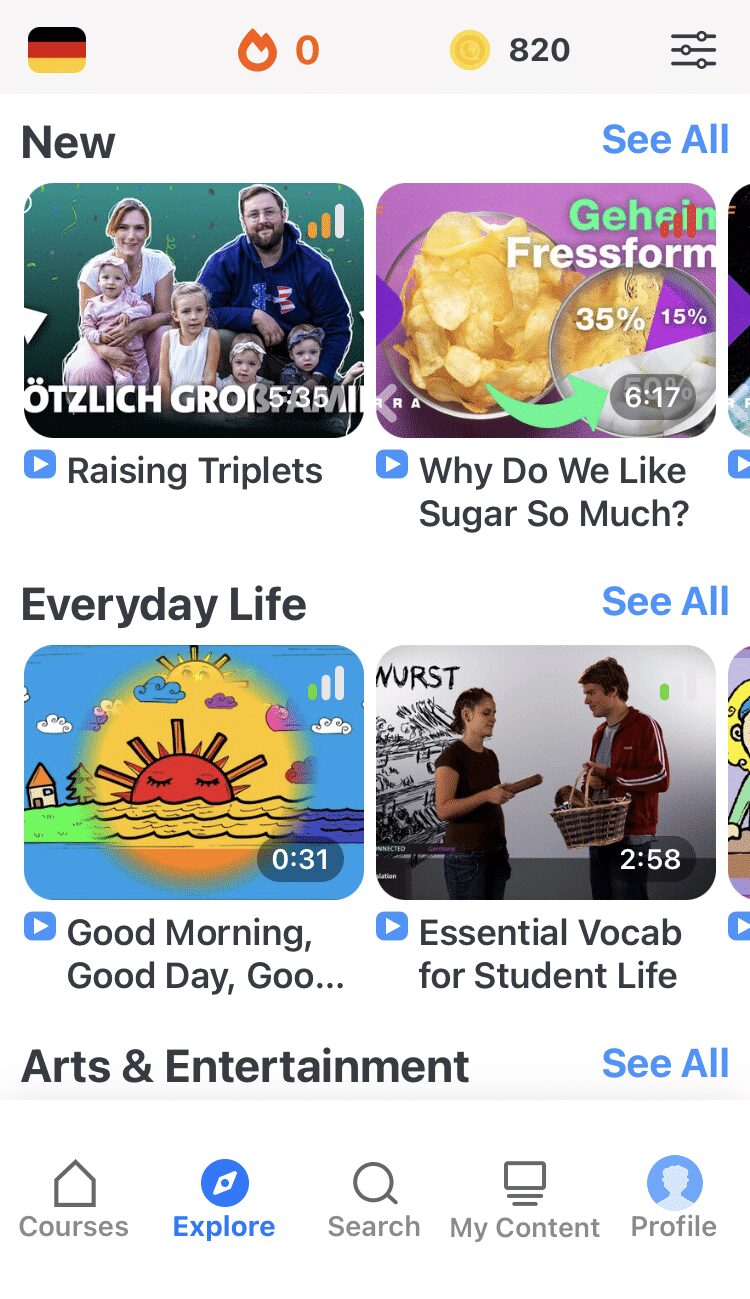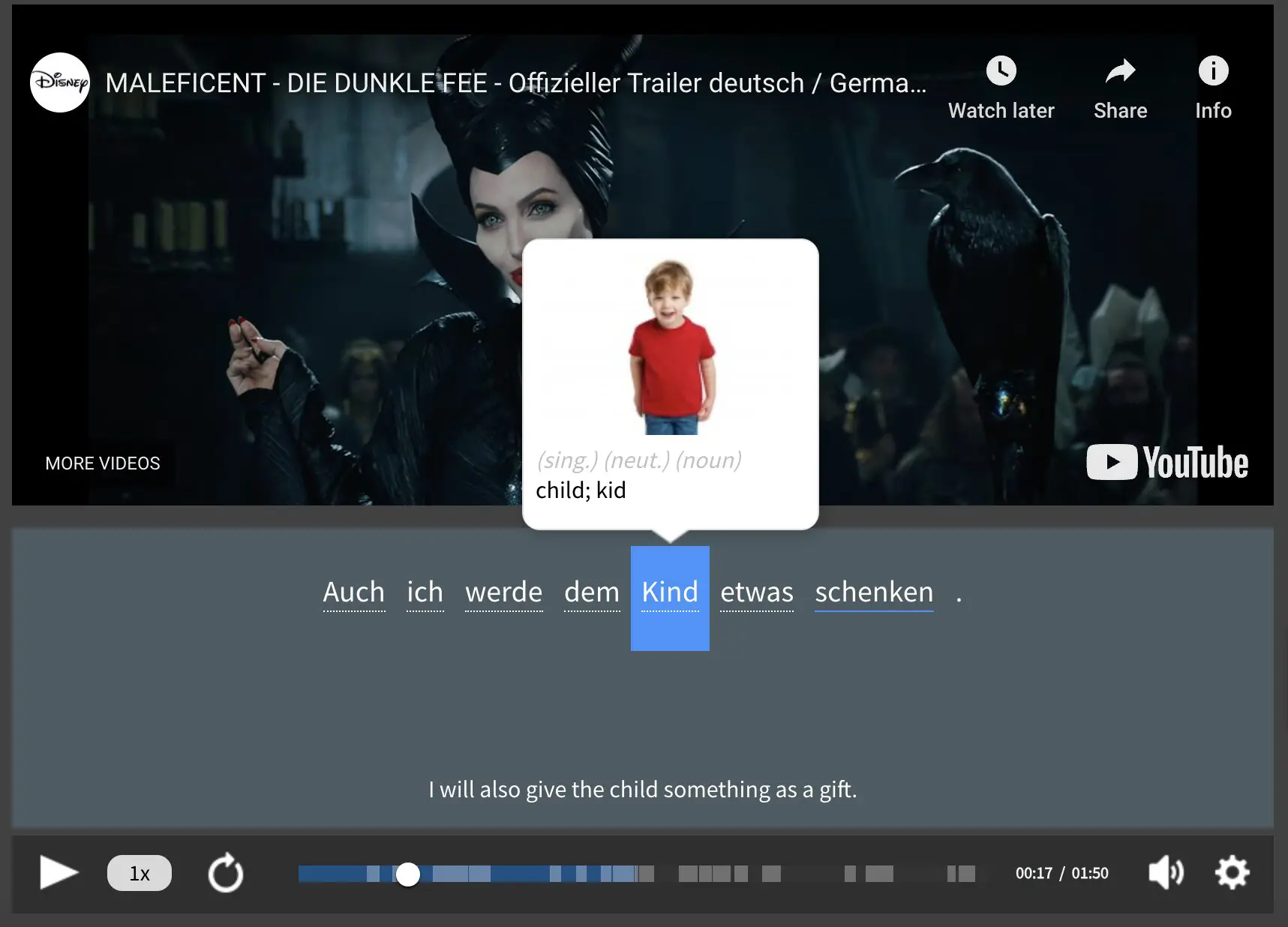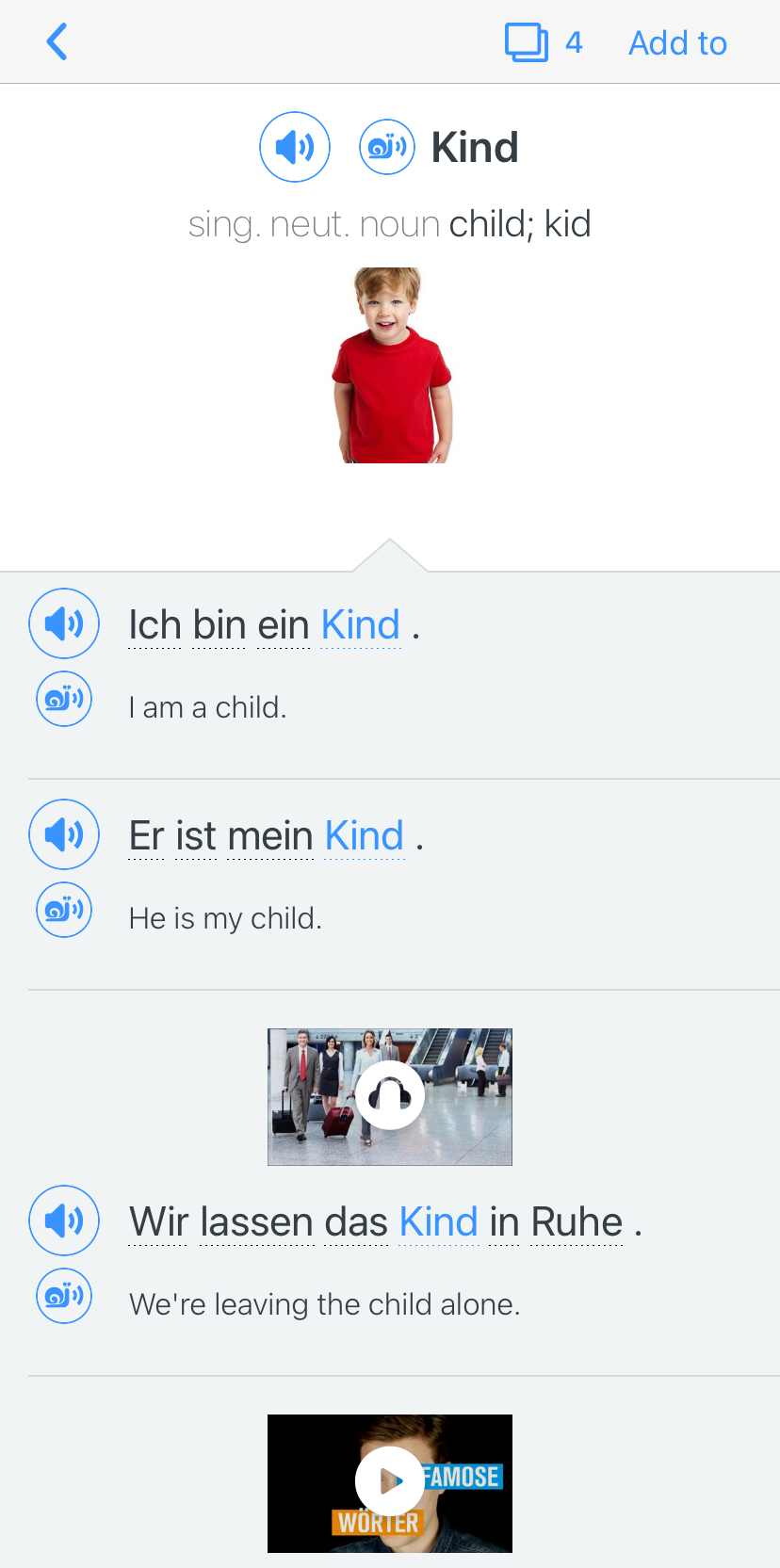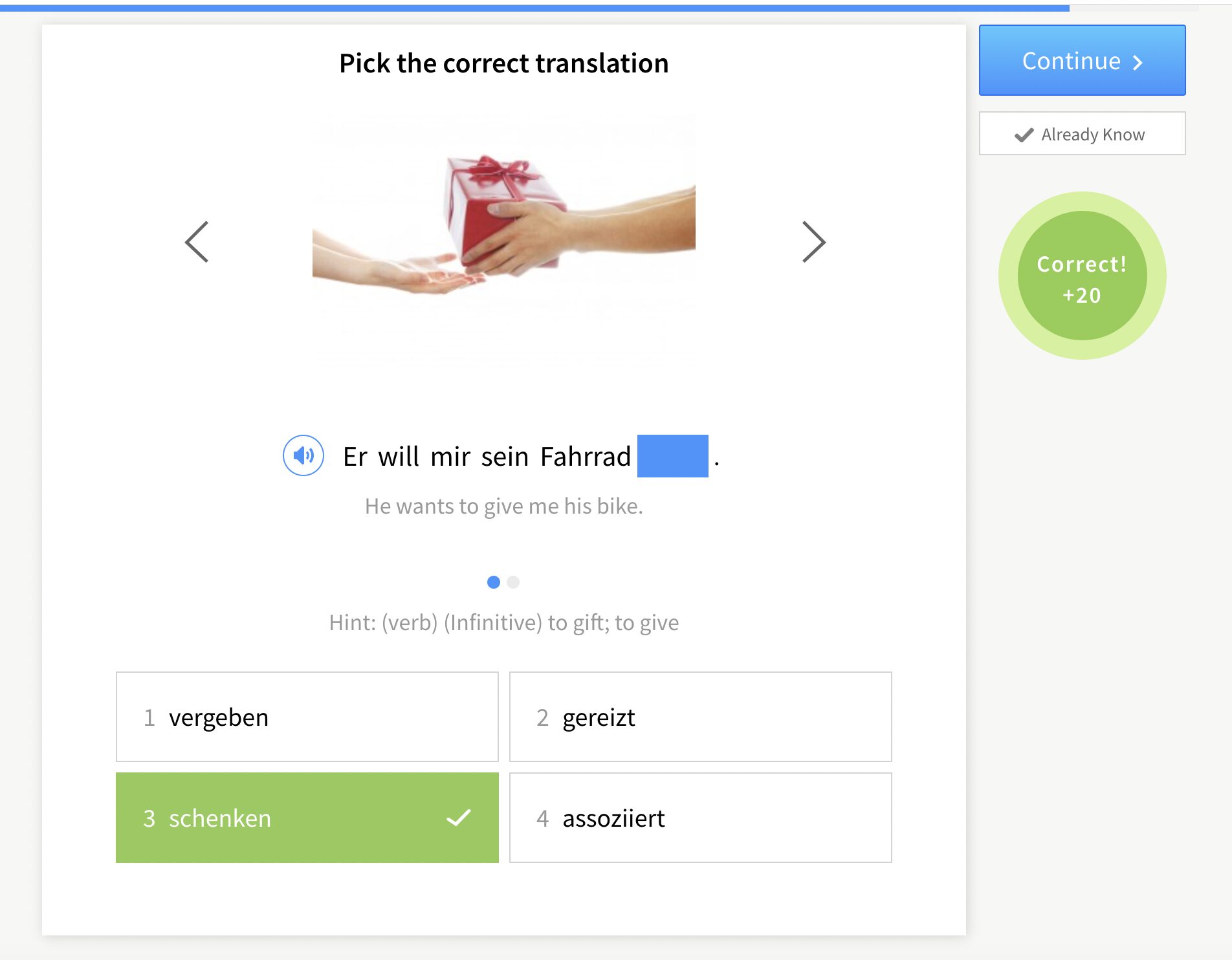How Long Does It Take to Learn German?

If you’re wondering, “How long does it take to learn German?” there are some solid answers that’ll help you plot out your language studies.
In this post, we’ll go through the current research on how long it takes to learn German, and then we’ll walk you through four top hacks that will help you get fluent in German much faster.
Download: This blog post is available as a convenient and portable PDF that you can take anywhere. Click here to get a copy. (Download)
So, How Long Does It Really Take to Learn German?
According to the Foreign Service Institute of the American State Department, German is rated as a category 2 language.
This means that it is considered to be similar to English., and they estimate that German takes approximately 30 weeks, or 750 classroom hours to learn.
So, hey, less than a year if you really work hard doesn’t sound so bad, does it?
Keep in mind that this study was conducted on a group of language students who spent 25 hours per week in class, and three hours daily on individual practice, so that’s a lot of studying.
Keeping this in mind as a general guide, here are four language learning hacks that may help you beat these estimates.
German Language Hacks to Speed Up Your German Learning
We all need some tricks, tips and hacks to make our learning journey easier. Here are my top four.
1. Determine the German Level You Want to Achieve
Unsurprisingly, the more fluent you want to be in German, the longer it’ll take to achieve your goals. But how long will it take you to learn German from beginner to advanced stages?
I’ll start by extrapolating from my personal experience. Before I went to Germany for my Masters program, I was at an early intermediate stage—B1 in terms of the Common European Framework of Reference for Languages. It had taken me about a year and a half to get up to this point. I could get by in my new home, but my German was pretty broken.
Studying German from home, you can expect about the same time frame to get up to B1. This is supported by the Goethe Institut, which offers official German exams at levels A1 (beginner) to C2 (advanced). They say that you need to have completed at least 350 45-minute German lessons/practice sessions to reach B1, which would take roughly a year and a half since most people can’t take a lesson every single day in a row.
For those passionate souls who were probably linguists in a previous life, you’ll be aiming for C2 German fluency. This is where you want to know the German language in every atom of your being, not to mention German culture and etiquette. Learners reach C2 at different rates depending on the other factors we’ll discuss here, but expect nothing less than three years (and probably several more years).
The Goethe Institut says you need to have studied German for at least 750 hours to get to this point.
Deciding where you want to end up beforehand will help you determine exactly how long it will take for you. If you just want to get by, it’ll be much faster than aiming to write academic papers.
2. Do as Much German Immersion as You Can
Immersion is generally accepted to be one of the fastest ways to learn a language, especially if you can achieve total immersion by living in Germany. I’m a German teacher in India, and I usually suggest that my intermediate students go to Germany and take light, fun German classes on the weekends. That way they’re immersed in German 24/7 while getting a bit of focused language study. With this method, most of them get fluent within six months.
This of course varies, as each individual is different and blessed with different kinds of intelligence. But in a total immersion environment you can expect to learn German within this time frame, and maybe up to a couple of years, depending on how much of a beginner you were when you arrived. Of course, for this to work, you need to be really immersed! No hanging out at English pubs in Berlin!
Okay, so what can you do if you aren’t currently located in a German-speaking area? While slower than total immersion, at-home immersion is still an option, thanks to great online resources.
Online immersion programs are one way to accomplish this. Rosetta Stone is one immersion program that follows the traditional way of teaching a language.
Another great program is FluentU, which teaches the language through short video clips from authentic German media including movies, TV shows and news segments.
Online language exchanges are another great way to get immersive German practice from anywhere. They allow you to converse in German with actual native speakers over video or text chat. Here are a dozen helpful tips to find a German language exchange partner.
3. Co-relate German Words
I call this the “language sense.” I strongly believe that when we learn a new language, our intuition needs to be at its peak. We need to co-relate (or associate) the words we hear to something we already know. Given that English and German are cousins, co-relating makes the learning process a lot faster for native English speakers.
Let me give you an example. If I hear the word sitzen , I immediately co-relate it to the English word “sit.” After all, sitzen and sit don’t sound that different! Even if I haven’t officially studied the word sitzen, I can use my language sense and context to figure out what it means.
If you’ve looked at some German cognates with English, then you’ve already started to co-relate! But it’s not just about similar-looking words.
You can become even better at co-relating after learning some of the basic rules of German. Take separable verbs, for example. Verbs that have the aus prefix refer to an outward action such as ausgehen (to go out), auswandern (to immigrate out of the country), ausnutzen (to exploit/to take advantage of), etc. Once you know this, you can piece together the meaning of different German verbs.
In a similar manner you can build your German language sense by understanding what different prefixes typically mean.
It’s hard to provide a hard-and-fast rule for how much your ability to co-relate will speed up your language learning process. This is the kind of thing that’ll pay dividends over time, by cutting down on your vocabulary drills and creating space for you to study other German concepts.
4. Focus on German Grammar Structures
Although co-relating is an important element of language learning, don’t fall into the trap of translating directly word-for-word between German and your native language. By focusing on German grammar structures, you’ll start to sound more natural and fluent in German way faster.
For example, in German, it’s a well known fact that verbs have a very fixed place in different kinds of questions and statements. If you start jamming German words into sentences using the same structures you use in English, you won’t make much sense.
Therefore, to learn German faster, you need to start focusing on German grammar as early as possible. Keep a notebook to write down common German sentence structures you encounter. Get yourself a verb conjugation book. Try free German grammar exercises online at the German-learning site Deustch-Lernen.
You can actually combine the immersion method we discussed above with your grammar practice. For example, you can naturally absorb German grammatical structures by listening to native German pop stars—here’s how.
Want to speed things up even more? Check out this post, which features six tricks to hack German grammar:
How to Learn German Grammar: 10 Simple Techniques | FluentU German Blog
Here’s how to learn German grammar without pulling your hair out. Check out this post to learn our top 10 tricks, tips and hacks for quickly learning German grammar. Focus…
Here’s one last secret for you: there won’t necessarily be a single moment where you’ve totally learned German. Language learning is an ongoing process even after you can start calling yourself fluent.
It’s important to remember that learning a new language is an art, not a science. So instead of taking a very logical approach, try and learn German with an open mind. Try and develop your own logic to connect with the language.
Learning any new language isn’t easy. It requires, time, effort and dedication. But most importantly, passion is the key ingredient.
Download: This blog post is available as a convenient and portable PDF that you can take anywhere. Click here to get a copy. (Download)
German Immersion from Your Device
I get it–learning German isn’t always a walk in the park. But it doesn’t have to be a boring, tedious, or hair-pulling experience either. In fact, making it fun is key to your success!
With FluentU, you can learn German naturally by turning any YouTube or Netflix video with subtitles into an interactive language lesson. I’m talking about language immersion from the convenience of your device.
You can even import your favorite YouTube videos into your FluentU account to learn from them using the app or website. Or browse our curated library of videos handpicked for beginners and intermediate learners.
While you watch a video, FluentU’s interactive subtitles let you tap on any word for an instant definition, example sentences, images, and audio. No more pausing and searching for translations—everything you need is right there!
It's all built to help you learn how to use words in real contexts. And as you learn, you can add new words to your flaschards with just a click! For example, if I tap on the word "Kind," this is what pops up:
Learn even faster with built-in quizzes that reinforce vocab from every video. FluentU tracks your progress, gives you extra practice with tricky words, and reminds you when it’s time to review—so your learning is always personalized and effective.
Try FluentU today on your computer or tablet, or download our app from the App Store or Google Play. Click here to take advantage of our current sale! (Expires at the end of this month.)












